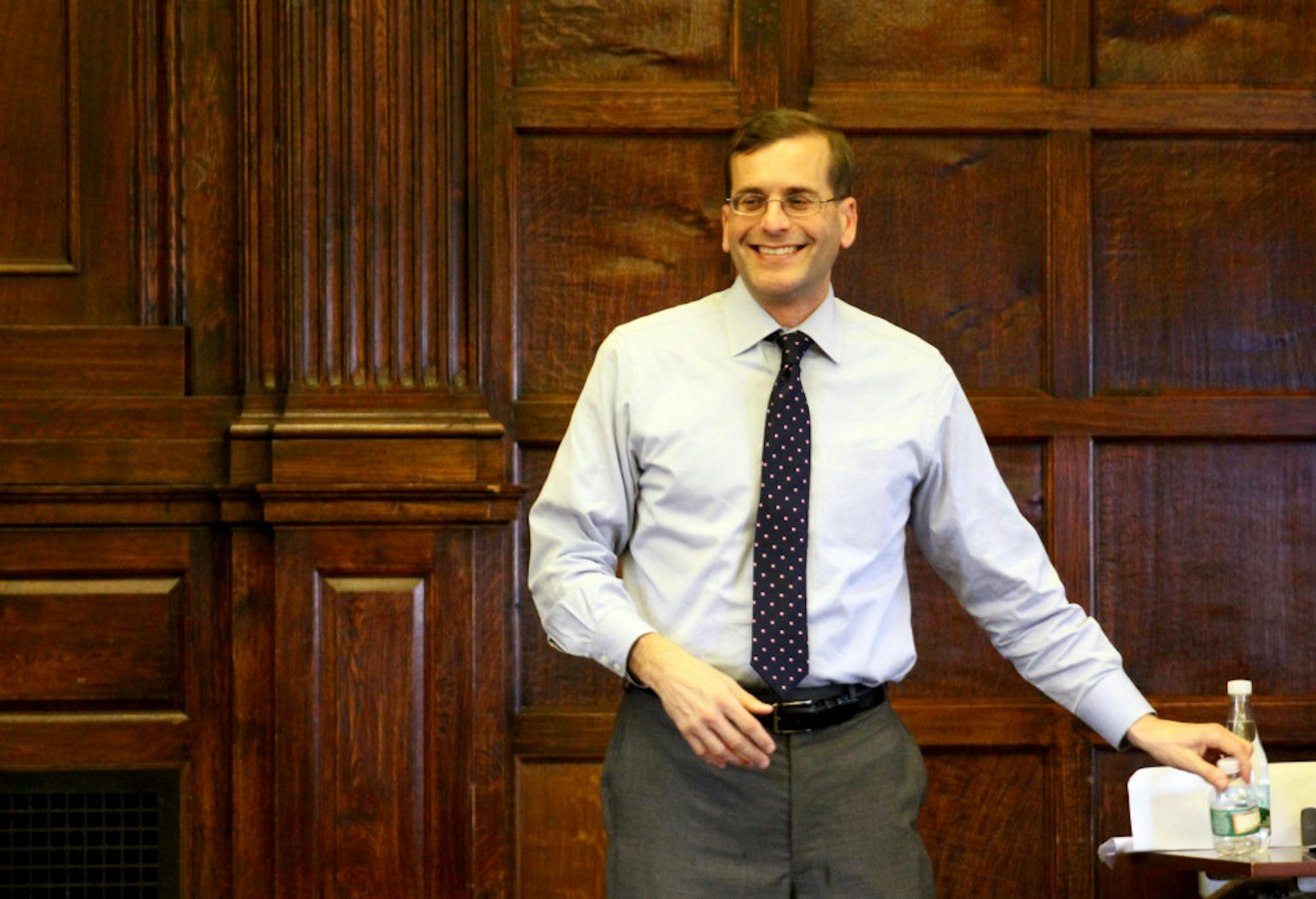The Department of Philosophy hosted Evan Mandery, a professor of criminal justice at John Jay College, for a lecture on Friday about the 1987 Supreme Court case McCleskey v. Kemp, which was a seminal ruling that found that evidence of racial discrimination could not be used to overturn the death penalty.
The event was this year's annual Hugo Adam Bedau Memorial Lecture, which is named after a former professor of philosophy. The event began with a short introduction by Northeastern University Law Professor Michael Meltsner, who knew Bedau. Meltsner described Bedau as a longtime advocate for justice and said that the lecture -- held annually since Bedau's death from Parkinson's disease in 2012 -- was meant to commemorate his life.
Meltsner then introduced Mandery, the event's keynote speaker on the McCleskey v. Kemp case. Meltsner gave a brief explanation of Mandery’s most recent book, "A Wild Justice,” saying it explored the limitations of the death penalty in the history of court cases.
“There is no shortage in books about the Supreme Court and the death penalty, but very few get to show how the decision-making process happens,” Meltsner said. “Mandery interviewed the clerks who were involved in the cases, which is something that no one has really done before.”
After the introduction was over, Mandery began his speech by noting his respect for Bedau and his writings. Although he had never met Bedau in person, the professor became a role model he admired, he said.
“Reading Bedau’s book made it conspicuous that he had a view, but he also worked very diligently to be fair about it,” Mandery said. “He presented contrary evidence and was careful to present two sides of every issue.”
Mandery also spoke about the 1972 Supreme Court case of Furman v. Georgia. That case was unique, Mandery said, because all five justices ruling in the 5-4 majority wrote separate opinions.
According to Mandery, Justice Potter Stewart voted to strike down the death penalty statutes that existed in most states, arguing that in their current forms they violated the Eighth Amendment's prohibition of cruel and unusual punishment. Stewart argued that the death penalty does not necessarily violate the Constitution, as long as states revised their statutes to give out sentences in less arbitrary ways. Mandery said all of the justices believed that the decision would mark the end of the death penalty.
“However, 40 years later, 35 states have passed new statutes concerning the death penalty," Mandery said. "There is no consistency in the American death penalty, both in the national and intrastate level.”
Mandery noted that two percent of counties are responsible for half of the executions in the United States, and he criticized how arbitrary the implementation of the death penalty can be. In particular, Mandery said that McCleskey v. Kemp was significant for trials about racial discrimination in court.
Mandery explained that Warren McCleskeyhad been convicted of armed robbery and murder. McCleskey then petitioned the Supreme Court to review his case, referring to a study by University of Iowa College of Law Professor David Baldus as evidence of discrimination.
“Baldus led a social science study of the arbitrariness of death penalties in Georgia,” Mandery said. “He coded 2500 various death penalty cases and found a significant race effect. You were much more likely to get a death penalty if you killed a white person than if you killed a black person.”
Mandery said that Justice Lewis Powell, however, argued that the statistical study was not enough evidence to reverse McCleskey’s conviction. The court sentenced McCleskey to death.
“What I know from my research, though, [is that] Powell was [previously] very uneasy about the death penalty," he said. "He asked the clerk to research whether these cases can be prospectively applied.”
He said that Powell had spoken with numerous clerks about the matter, and most of the conversations had been expansive and cathartic. However, Powell’s regret was expressed long after the case was declared, and it was irretrievable then.
By examining the two cases, Mandery expressed his concern about the prevalence of the death penalty in the United States.
“If the death penalty were reserved for Hitler, I just wouldn’t care about it, " Mandery said. "It’s not about the penalty itself. It’s the [systemic] structure of the death penalty against poor black murderers that makes me so concerned about it.”
Philosophy Department hosts lecture on landmark Supreme Court case

Evan Mandery reacts to a question from the audience during the Philosophy Department's event "Blind Justice: The Lost Opportunity of Mccluskey v. Kemp" in the Crane Room on March 3rd.





